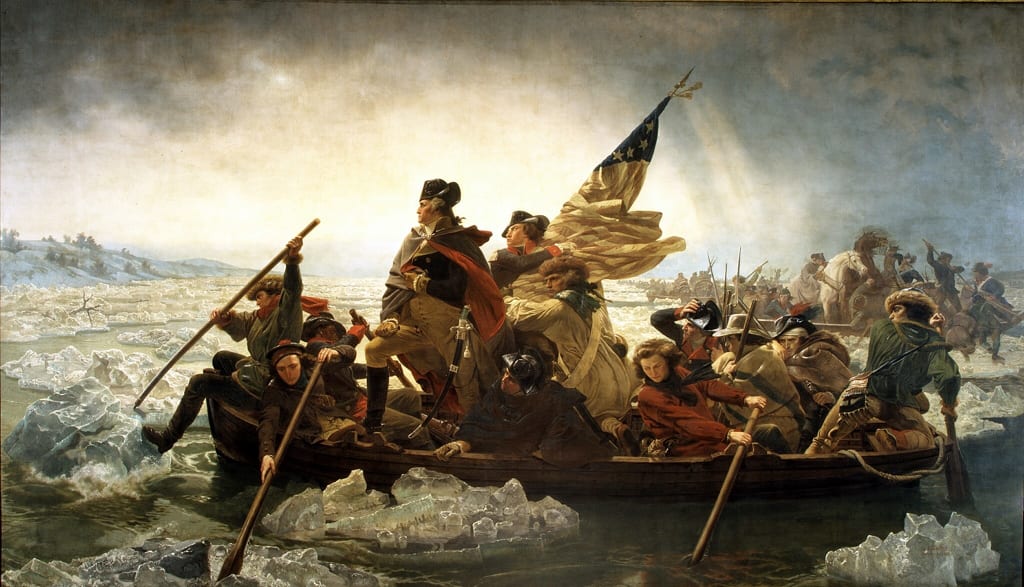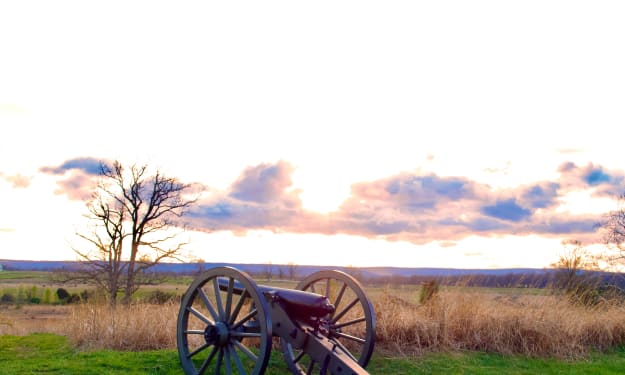
Ah, the War of Independence, a real-life David vs. Goliath tale! Picture this: it's the late 18th century, and a bunch of plucky American colonies, tired of sipping British tea and paying pesky taxes, decide it's high time for a change. They yearn for freedom, like a caged bird yearns for the open sky. And so, this epic clash unfolds, pitting the underdog colonists against the mighty British Empire. Brace yourself for a rollercoaster ride through battles, declarations, and brave souls fighting tooth and nail for their right to self-determination. Get ready to witness history in the making!
Causes of the War
Taxation and Colonial Resistance
Remember that feeling when someone takes a chunk of your allowance without asking? Well, the colonists knew that feeling all too well. The British government, in an attempt to refill their coffers, imposed taxes left and right. First, there was the notorious Stamp Act of 1765, slapping taxes on every printed document. Colonists were not amused and rebelled against this "taxing" situation. Then came the Boston Tea Party in 1773, where angry colonists, dressed as Native Americans, dumped crates of tea into the harbor, showing their fiery defiance.
Unfair British Policies
As if taxes weren't enough, the British were keen on flexing their authority over the colonies. They passed the Intolerable Acts, a series of harsh measures that limited colonial freedoms. Imagine having your home invaded by unwelcome guests, troops quartered in your living room, and your right to self-governance curtailed. The colonists had had enough. They yearned to control their own destiny, to be masters of their own ship. Thus, they stood united in the face of these unfair policies, ready to take a stand for their rights.
Major Events and Turning Points
Battles and Confrontation
- Lexington and Concord: Picture this – a crisp morning in April 1775, when the sound of a single gunshot ripples through the air. That shot, my friends, ignited the flame of revolution. The Battles of Lexington and Concord marked the first armed clashes between the colonists and the British troops. It was a defiant stand, showcasing the colonists' determination to protect their rights and resist British authority.
- Battle of Bunker Hill: Now, this battle was a true testament to the colonists' spirit. With limited ammunition and homemade fortifications, they faced off against the British in June 1775. Despite eventually retreating, the colonists fought fiercely, proving that they were no pushovers. The Battle of Bunker Hill boosted their morale and showed the world that they were serious about this whole independence thing.
- Saratoga: Imagine a turning point that changes the course of history. Saratoga, my friends, was just that. In 1777, American forces, led by General Horatio Gates, dealt a major blow to the British troops. This victory was a game-changer, convincing the French to lend their support to the colonists. Saratoga breathed new life into the fight for independence and showed that victory was within reach.
Key Figures
- George Washington: Ah, the man, the legend, the fearless leader! George Washington, tall and stately, commanded the Continental Army with determination and unwavering resolve. His strategic genius and unyielding spirit inspired the troops and kept the flame of independence burning bright.
- Thomas Jefferson: Now, here's a man with a way with words! Thomas Jefferson, a brilliant mind and the author of the Declaration of Independence penned the powerful words that stirred the hearts of the colonists. His ideas of life, liberty, and the pursuit of happiness became the very foundations of a new nation.
The War of Independence was shaped by these significant events and remarkable individuals. It was a time of courage, sacrifice, and the relentless pursuit of freedom. But the story doesn't end here; there's still much more to unravel on this riveting journey toward liberty.
The Declaration of Independence
What a document, the Declaration of Independence! This paper holds a special place in the annals of history. Picture this: a sweltering summer day in 1776, when Thomas Jefferson's quill danced across parchment, giving birth to words that would echo through the ages. The Declaration of Independence was a bold statement, announcing to the world that the American colonies were breaking free from the clutches of British rule.
But it wasn't just a breakup letter; it was a manifesto of ideals. Jefferson eloquently penned the principles of self-evident truths, unalienable rights, and the right to alter or abolish oppressive governments. It was a powerful call to arms, inspiring colonists and future generations to stand up for their rights and fight for a society built on liberty and equality.
The Declaration of Independence was more than just ink on paper. It became a symbol of hope, an emblem of a nation's quest for self-determination. Its ideas resonated far beyond the American shores, igniting the flames of liberty in the hearts of people across the globe. It was a beacon of light, guiding the path towards a new era of independence and democracy.
To this day, the Declaration of Independence stands tall, reminding us of the enduring power of ideas and the courage it takes to challenge the status quo. It is a reminder that freedom is not just a word, but a cherished ideal worth fighting for.
Foreign Support and Allies
During the War of Independence, the American colonies found themselves with some unexpected friends in their corner. Let's take a look at the allies who stepped up to support their struggle for freedom.
- France: Sacré bleu! The French saw an opportunity to stick it to their old rivals, the British, and eagerly joined forces with the American colonists. Led by the young and spirited Marquis de Lafayette, French troops and naval fleets provided much-needed military assistance. The French not only bolstered the colonists' ranks but also supplied crucial resources and financial aid, breathing new life into the revolution.
- Other Nations and Individuals: The fight for independence attracted attention from beyond the Atlantic. Spain, hoping to weaken the British Empire, lent support to the colonies, while the Dutch Republic provided financial aid and opened up trade opportunities. Additionally, individuals like Baron von Steuben, a Prussian military officer, brought his expertise to the Continental Army, instilling discipline and organization.
The support and alliances of these foreign powers added a powerful punch to the colonists' cause. They expanded the reach of the war and proved that the fight for liberty resonated across borders. With friends like these, the American colonies gained the strength and resources necessary to take on the mighty British Empire. Together, they stood united, a diverse tapestry of nations and individuals, all sharing a common goal: the triumph of freedom over oppression.
Challenges and Sacrifices
The War of Independence was no walk in the park. The American colonies faced numerous challenges and made significant sacrifices in their struggle for freedom. Let's delve into the hardships they endured and the unwavering resolve they displayed.
- Harsh Conditions: Picture this—brutal winters, scorching summers, and inhospitable terrain. The colonial soldiers trudged through icy valleys, marched under the sweltering sun, and battled against nature's wrath. They endured food shortages, inadequate supplies, and scarce resources. Yet, despite these challenges, they persisted, driven by their unwavering commitment to the cause.
- Role of Ordinary Citizens and Women: The fight for independence wasn't confined to the battlefield alone. Ordinary citizens, men and women alike, played vital roles in supporting the war effort. They worked tirelessly as nurses, seamstresses, and spies. Women took charge of managing households and farms while their husbands and sons were away, ensuring the survival of their communities. Their resilience and determination were essential pillars of the revolution.
The sacrifices made during the War of Independence cannot be overstated. Lives were lost, families torn apart, and communities uprooted. Yet, through it all, the spirit of freedom burned bright. The colonists exhibited unparalleled courage and resilience, demonstrating their unwavering dedication to securing their rights and liberties.
These sacrifices and challenges shaped the character of the American colonies and forged a bond among the people that would transcend the war itself. It was a testament to the human spirit and the enduring belief that freedom is worth fighting for.
Conclusion
The War of Independence culminated in a momentous turning point that would forever change the course of history. Let's explore the final stages of this transformative conflict and the lasting impact it had on the birth of a new nation.
- 1. The Treaty of Paris: In 1783, after years of struggle and sacrifice, the British finally acknowledged the independence of the American colonies. The Treaty of Paris was signed, officially recognizing the United States as a sovereign nation. It was a monumental achievement, marking the end of British rule and the beginning of a new era of self-governance for the American people.
- 2. Legacy of the War of Independence: The impact of the War of Independence extended far beyond the borders of the newly formed United States. It served as an inspiration for other nations and ignited a wave of independence movements around the world. The principles of liberty, equality, and self-determination that emerged from this conflict would shape the future of democratic ideals and influence generations to come.
The War of Independence was a triumph of courage, resilience, and unwavering determination. It showcased the extraordinary power of a united people fighting for their freedom. The sacrifices made, the battles fought, and the alliances forged all contributed to the establishment of a nation built on the principles of liberty and self-governance.
As we reflect on the War of Independence, let us remember the brave individuals who risked everything for the ideals of freedom and independence. Their legacy lives on, reminding us that the pursuit of liberty is a continuous journey, requiring vigilance and the unwavering commitment to safeguard the rights and freedoms we hold dear.
I run a newsletter called "Fun Facts". One weekly email that takes less than 1 minute of your time. Join the fun!






Comments
There are no comments for this story
Be the first to respond and start the conversation.